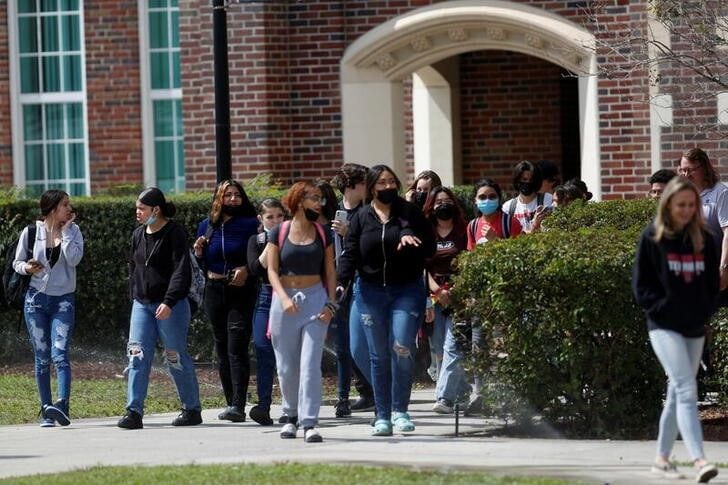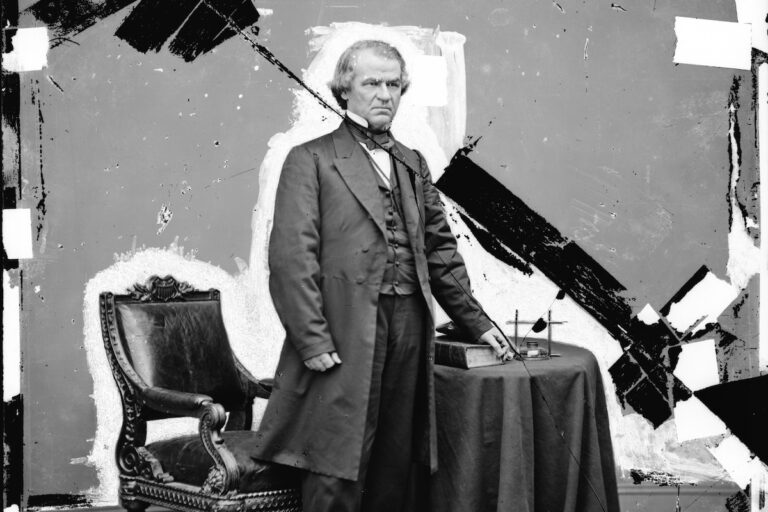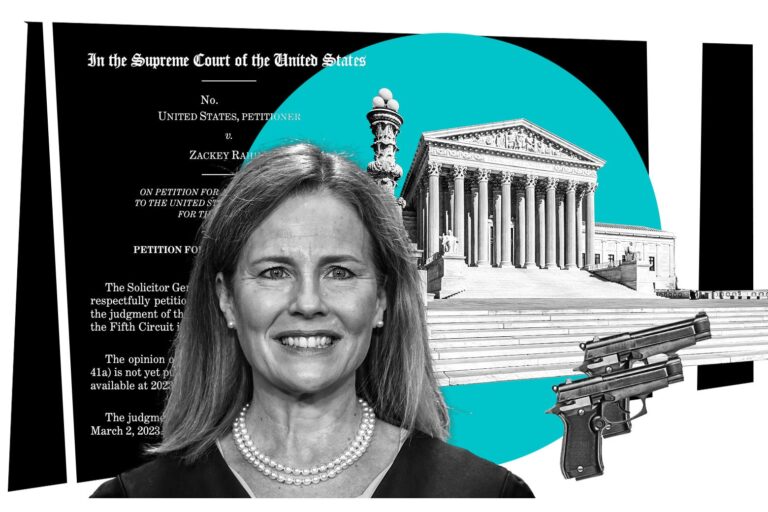The next generation of law students are obsessed with Lina Khan
More Of This
Lina Khan had spent the day doing TV interviews and press conferences defending the administration’s new tough-on-mergers stance. Now the chair of the Federal Trade Commission joined a more hospitable crowd. Squeezed into the corner of a bar steps from the White House, she urged law students not much younger than her to join the growing antitrust movement.
“This is just the very, very, very, very beginning of this work, and we need all of you to be in this movement, to be coming into government, to bring all your skills and talents to bear,” said Khan to whoops and cheers.
Waiting in the wings was an eager Columbia Law School student, Sahaj Sharda. He grasped the mic from Khan.
“Antitrust is like a great lever that lets the small lift up the large, opens new space for new ideas and inventions, enterprises and energy,” he said earnestly. “And you, the lawyers of tomorrow, are the fulcrum from which that lever draws its strength.”
Read the rest on Politico
First gen law students graduate with higher debt
Less Of This

First-generation law students on average spend more time studying, earn slightly lower grades, and graduate with higher debt loads than classmates whose parents who graduated from college, according to a comprehensive study released on Wednesday.
The Law School Survey of Student Engagement — an annual survey of thousands of U.S. law students that is part of Indiana University’s Center for Postsecondary Research — released its first-ever in-depth examination of first-generation students, finding that they make up 26% of law students nationwide.
Read the rest on Reuters
The law that ended slavery is now being used by conservatives to end affirmative action
Less Of This Too

After Congress passed the Civil Rights Act of 1866 — establishing citizenship for newly emancipated slaves — President Andrew Johnson vetoed it, voicing concern that it was “made to operate in favor of the colored and against the white race.”
But lawmakers overrode his veto, enacting one of the nation’s first building blocks of an equal society.
Now, 157 years later, the law has become central to the legal battle over what is fair and equal when it comes to race in the workplace. In recent years — and especially since the Supreme Court overturned race-conscious college admissions in June — the Reconstruction-era law has emerged as a critical tool for conservatives intent on dismantling race-specific programs that promote “diversity, equity and inclusion,” or DEI.
Read the rest on Washington Post
SCOTUS' newest gun case is a humiliation for the conservative legal movement
Perspective

For Zackey Rahimi, the solution for just about every problem in life seems to be to shoot a gun in its general direction. In December 2019, he fired a shot at a bystander who’d seen him shove his girlfriend in a parking lot, then threatened to shoot his girlfriend too if she told anyone about it. When an acquaintance posted something rude about him on social media, he fired an AR-15 into their house. When he got into a car accident, he shot at the other driver; when a truck flashed its lights at him on the highway, he followed the driver off the exit and, for some reason, shot at a different car that was behind the offending truck. After Rahimi’s friend’s credit card was declined at a Whataburger, Rahimi pulled out a gun and fired several shots into the air, a choice that I doubt made terrified employees any more inclined to fulfill his order.
None of this was in dispute on Tuesday, when the Supreme Court heard oral arguments over Rahimi’s bid to keep his beloved guns. But it was also not much of a topic of conversation, as Justice Clarence Thomas claimed there existed only a “very thin record” in the case. Despite the court’s inability (or unwillingness) to highlight the horrifying facts of his case, it does seem as if enough conservatives will join the court’s progressives to reject Rahimi’s plea.
Read the rest on Slate










